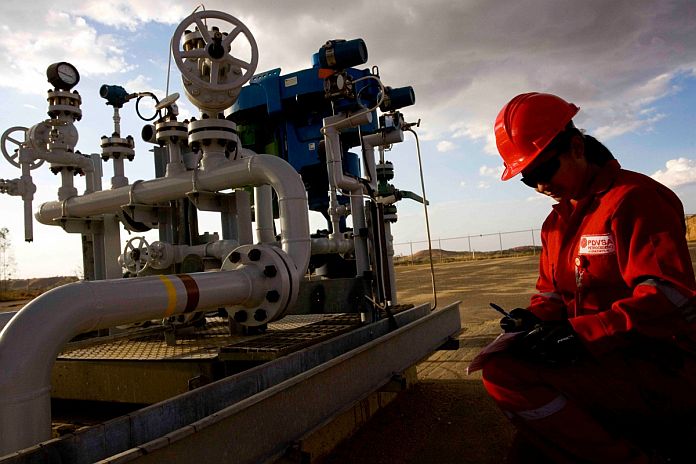By Ricardo Vaz
Mérida, (venezuelanalysis.com) – Venezuelan state oil company PDVSA will assume total ownership of the Petrocedeño joint venture.
On Wednesday, PDVSA and the oil ministry published a communique reporting on the “important and harmonious negotiations” to take control of 100 percent of the shares of “one of Latin America’s most powerful enterprises.”
“The reactivation of the Orinoco Oil Belt operations includes the recovery of all of the Petrocedeño crude upgrading units after a long paralysis,” the statement read.
The Caracas-headquartered company took over the 30 and 10 percent participations held by multinational corporations TotalEnergies (France) and Equinor (Norway) respectively. The communique referred to the oil giants’ “business model transformations” towards clean energy sources.
While the compensation amounts were not publicly disclosed, Total told Bloomberg that surrendering its stake represented a US $1.38 billion loss.
For his part, the French enterprise’s CEO Patrick Pouyanné said in a conference call that the sale had been for a “symbolic amount” and that Petrocedeño would require a “significant amount of capex (capital expenditure) to restore the production with new wells and to rejuvenate the upgrader.”
Equinor told Reuters that the move is part of its strategy to “focus its portfolio on international core areas and prioritised geographies” where the company can “leverage its competitive advantages.”
Oil operations in Venezuela have been significantly affected by crushing US sanctions in recent years. Following financial sanctions in August 2017, Washington imposed an oil embargo in January 2019 before levying secondary sanctions and a raft of other measures in 2020. A clampdown on swap deals added further difficulties for PDVSA’s foreign partners.
The oil embargo was a severe blow for the eastern Venezuela Orinoco Oil Belt producers that were shipping some 500,000 barrels per day (bpd) of extra-heavy crude to US Gulf Coast refiners at the time. Analyst Francisco Rodríguez estimated that the country is losing as much as $6.9 billion annually in revenue from fallen Oil Belt production and exports.
PDVSA and its partners attempted to convert heavy crude upgraders into blending facilities to produce the export grades favored by Asian markets but production has remained at low levels. Petrocedeño’s output reportedly registered at 14,000 bpd in May, well below other joint ventures. Petrosinovensa and Petropiar, respectively co-owned by China’s CNPC and the US’ Chevron, have been producing above 50,000 bpd.
Caracas most recently weighed adapting the Petrocedeño and Petropiar plants to produce naphtha for refineries in order to address fuel shortages.
Pouyanné claimed that TotalEnergies’ decision was not owed to the Venezuelan political situation or US sanctions, though he did acknowledge that the latter “did not make life easy” for the corporation.
Investigative portal La Tabla reported that both TotalEnergies and Equinor will remain involved in natural gas projects in Venezuela. The two corporations have partnered with PDVSA since the 1990s.
Petrocedeño, which operates in the Junín bloc between Guárico and Anzoátegui states, was founded in 2007 as former President Hugo Chávez pushed legislation to increase PDVSA’s role in the oil industry. A 2007 decree stipulated that the state oil company had to hold at least a 60 percent stake in all joint ventures.
While several oil heavyweights clashed with the Chávez government, leading to a string of nationalizations, Total and Equinor were among those to keep their investments in the hydrocarbon sector. However, US sanctions and threats have increasingly driven foreign enterprises away from dealing with PDVSA.
After hitting historically low production levels in the second half of 2020, Venezuela’s most important industry has managed to slowly rebound in 2021. The Nicolás Maduro government has stressed the recovery of crude output as a priority and looked to court foreign investment.





